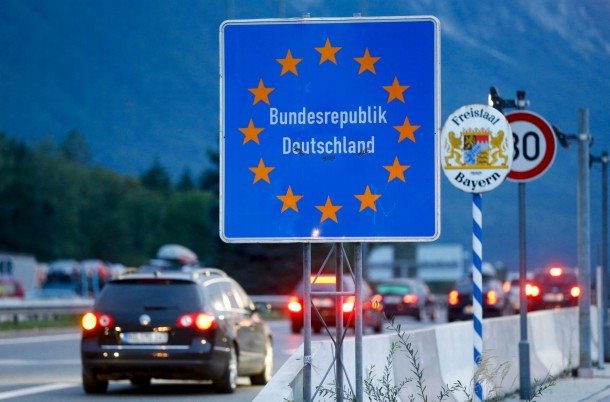On Sunday, German officials announced that the country would be temporarily re-introducing border controls in an attempt to combat the overwhelming number of refugees entering the country.
At this point, it seems these border control measures will be focused primarily on the German-Austrian border where it is believed most refugees have been making their way into Germany undocumented.
German Minister for the Interior, Thomas de Meiziere, stressed the necessity of these temporary measures as the massive influx of refugees has stretched the German immigration system to breaking point. In a press conference used to announce these measures, Meiziere stated that, “The aim of these measures is to limit the current flows to Germany and to return to orderly procedures when people are entering the country”.
The border control measures came into force on Sunday evening at 5pm Berlin time when all trains from Austria to the German state of Bavaria were stopped for extensive checks which involved inspections of vehicles and the presentation of official documents from those attempting to cross the border.
This move by the German government signifies the country’s temporary departure from the Schengen Agreement, established in 1995, which allowed for the free movement of European Union citizen between all member states without border controls.
In unofficially opting-out of the Schengen Agreement, Germany was soon joined by the Czech Republic, who imposed heavier controls on their border with Austria, and Slovakia, which announced its intention to tighten its border with Hungary.
The strain on the German immigration system is becoming obvious as thousands of refugees fleeing the conflict in Syria arrive at the country’s doorstep every day, with all requiring immediate food and shelter.
German federal states such as Bavaria are intensifying their criticism of Chancellor Angela Merkel’s desire to welcome more refugees into the country, with Christoph Hillenbrand, President of Upper Bavaria, stating that the move was an “unparalleled historical mistake”. Hillenbrand went on to tell of the imminent collapse of the system for dealing with refugees in Bavaria, with almost 65,000 arriving in the southern state alone since the end of August.
“It’s not feasible for us to take in the equivalent of a small town’s population every day, it’s simply not logistically doable anymore,” Hillenbrand stated.
It is expected that the new German border controls on their southern frontier with Austria will continue for several weeks until the leaders of the EU member states come up with a plan to stem the unbridled spread of refugees across the continent which is now being described as the most significant challenge ever faced by the European Union.

